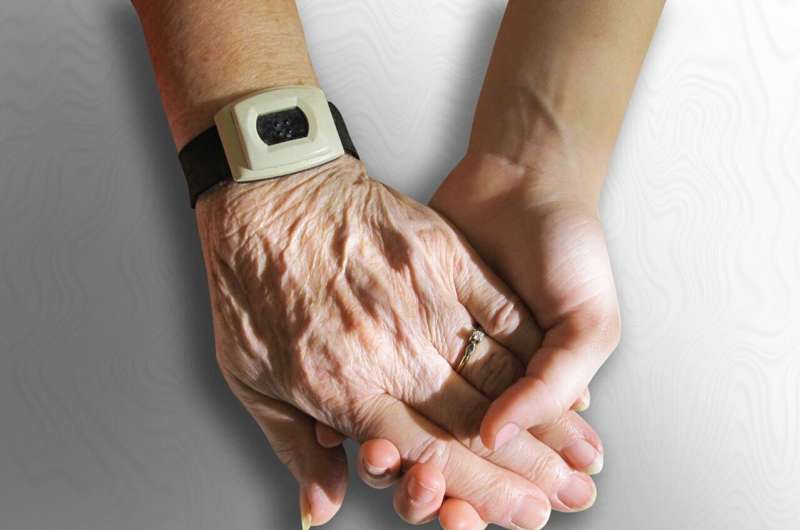Credit: Pixabay/CC0 Public Domain
The first approval of the principle of legalizing assisted dying in a British jurisdiction in November signals an urgent need to understand the implications of such legislation on healthcare professionals.
The agreement by the parliament in Jersey that assisted dying should be allowed in limited circumstances will now trigger local politicians to draft legislation on the issue ahead of a further debate in 2023.
The developments in the Channel Islands are significant for being the first of their kind in the British Isles but are part of a wider international movement towards formally allowing some form of assisted dying. Governments in areas of Australia, Germany, Ireland, Portugal, Spain and New Zealand have all produced recent legislation in support of the practice. Given this momentum, and the changes in Jersey, the prospect of other British jurisdictions introducing assisted-dying legislation looks increasingly likely.
With the question of introducing assisted-dying legislation in Britain being when—not if—it happens, we need to recognize the practical challenges that can come with introducing such measures. This includes addressing how and whether healthcare professionals will be involved in facilitating assisted dying, and the effect this may have on them.
Uneasy relationship
Several research studies on assisted dying conducted at Lancaster University have highlighted the practical and ethical challenges for healthcare professionals who are asked by patients to support medically assisted dying. Interviews with medical practitioners often indicate an uneasy relationship for many healthcare workers with this practice.
In [the Netherlands], where both medically assisted suicide and euthanasia are permissible, healthcare workers supporting patients with an assisted death described the work as emotionally demanding, particularly for less experienced professionals. Even when healthcare professionals are trained to support patients in this area, some feel they can do only one or two cases a year.
One doctor interviewed for the study said: "I had a colleague who was all for it [assisted dying] and she's 'I can't do it anymore' because even if you are in favor of it, it becomes a burden when you do it three or four times. It is stressful to kill somebody."
Some healthcare workers in the study even applied to work in places where assisted dying did not occur. Others were more comfortable being involved but agreed it was never a normal death and they remembered each one.
In Switzerland, assisted dying is largely a civil rather than medical act, with the assisted deaths being conducted largely with right-to-die associations rather than the patient's usual healthcare team. A study of palliative care doctors in Switzerland suggested that they received little formal training on responding to assisted suicide requests, leading to unease about their role. The absence of clearly defined roles or training also meant responses to requests were shaped by personal values rather than patient preference.
Interviews with hospice staff in Washington in the US, where a form of medically assisted dying is available, found that they encountered different types of suicide, and felt conflicted and powerless about wanting to prevent suicide on one hand and supporting a patient's decision on the other.
Healthcare professionals often have to overcome their unease at being involved with an assisted death while trying to honor the patient's wishes.
There are practical actions that doctors will be involved with, such as issuing prescriptions for the lethal concoction and getting patients to complete forms showing they are of sound mind, have a terminal condition, and so on. In some jurisdictions, such as the Netherlands, this is carefully managed—but it is the act of administering the lethal injection that is the most difficult, with one study participant saying that "it has a lot of impact. For me it takes a year before I get over it."
Healthcare professionals need support, too. It was common for nurses involved in the death to be allowed to go home early following the death. While the deaths are, as one study participant put it, "never normal" they are memorable and, when handled well, were spoken of almost with reverence.
All legislatures need to consider how healthcare professionals are supported when assisted dying is introduced to healthcare. This needs to be addressed both in the education of healthcare professionals, which currently only includes scant attention to palliative and end-of-life care, and through day-to-day supervision and support.
These and other research studies examining the experiences of healthcare professionals highlight some of the consequences of assisted-dying legislation for those working in healthcare. Whether it is a predominantly civil act, as the case in Switzerland, or a medical act, as defined in many other jurisdictions, assisted dying has consequences for the involvement and responsibility of healthcare workers towards patients and their families. These need to be considered and planned for before introducing new legislation.
Provided by The Conversation
This article is republished from The Conversation under a Creative Commons license. Read the original article.![]()























